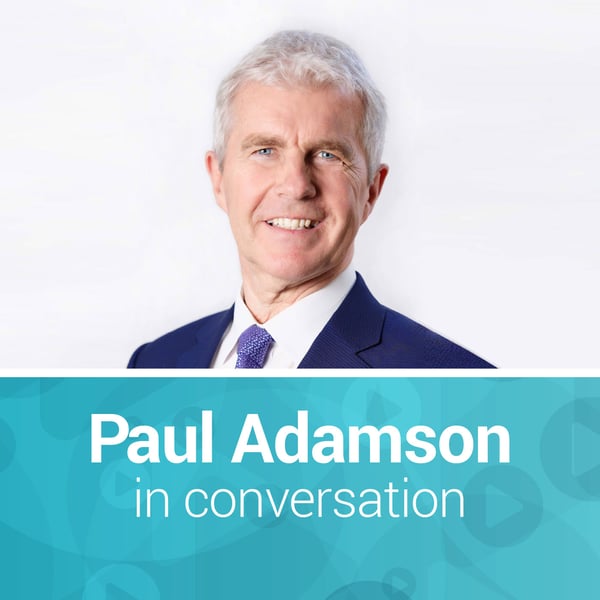Confronting the EU's new realities
Paul Adamson in conversation
Paul Adamson
4.4 • 7 Ratings
🗓️ 8 April 2019
⏱️ 31 minutes
🧾️ Download transcript
Summary
Transcript
Click on a timestamp to play from that location
| 0:00.0 | Welcome to In Conversation, the regular podcast of E-sharp magazine. Go to e-sharp.E.sharp. |
| 0:12.0 | for free access to all our podcasts to date. This is Paul Adamson, and I'm in conversation with Bridget Laffin. |
| 0:18.0 | Bridget is the director of the Robert Schumann Center at the European |
| 0:20.8 | University Institute in Florence. We're going to talk big time, Bridget. We're going to talk about |
| 0:26.7 | the future of Europe from all different directions. This is obviously a critical year, |
| 0:30.4 | 2019, but arguably every year in the EU's history is a critical year. But a lot of changes this year, |
| 0:35.8 | clearly on the horizon, which you can imagine as well as I can. |
| 0:39.7 | I'd like you, first of all, to talk about in terms of, from a member state point of view, a lot of people say that the Franco-German axis has always been key to the future, not just direction of travel, but the degree of intensity of cooperation and integration in Europe in the past, is that motor still |
| 0:56.0 | there, functioning is still calling all the shots, as it were, or are other new alliances in |
| 1:00.8 | other member states who don't necessarily accept the automatic kind of leadership role of the French |
| 1:07.2 | and the Germans? |
| 1:08.2 | I think the first thing I would say is that there are many possible |
| 1:12.1 | futures for Europe. In other words, we're at a time when it's really difficult to determine |
| 1:17.5 | a direction of travel. That said, looking across Europe, and I'm assuming for the purposes |
| 1:25.3 | of our conversation, that that is an EU of 27 rather than 28, |
| 1:29.3 | although that's still an open question. |
| 1:33.3 | What sort of shape? |
| 1:35.3 | Well, the Eastern enlargement from 2004 onwards, the EU became a very different union because it was continental in scale. The levels of development across |
| 1:46.7 | Europe were very different to the pre-West European EU. So I think one of the biggest challenges |
| 1:54.6 | for the EU since 2004 has been how do you manage that level of diversity? How do you hold the system together? |
| 2:04.1 | Undoubtedly, the Franco-German relationship has always been key. And I would say for two reasons. |
| 2:10.7 | One, that if they don't agree, then not much can happen without them. So a lot of the Franco-German relationship is about |
... |
Please login to see the full transcript.
Disclaimer: The podcast and artwork embedded on this page are from Paul Adamson, and are the property of its owner and not affiliated with or endorsed by Tapesearch.
Generated transcripts are the property of Paul Adamson and are distributed freely under the Fair Use doctrine. Transcripts generated by Tapesearch are not guaranteed to be accurate.
Copyright © Tapesearch 2025.

